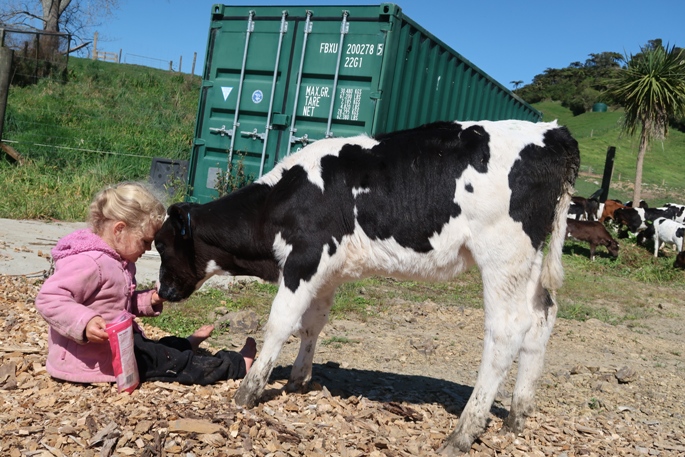The 2021 Dairy Industry Waikato region Share Farmers of the Year, Reuben and Deb Connolly, are preparing for the start of their ninth calving season.
The couple are sharemilking 280 predominantly Friesian cows with some Jersey and Kiwi cross, on a 110ha effective, production system three farm in Otorohanga. The heifers will start calving mid-July, with the rest of the herd starting 10 days later.
“Preparation in the areas that we can control is the key,” says Deb.
The Connolly’s have a custom built, five bay calf shed, with a race system, making it easier to manage feeding for the different age groups. Daily cleaning of the feeding gear and pens, fresh water, hay and meal available at all times, and isolation of any sick calves, are essential for healthy, thriving calves.
Calving is managed by the farm’s 2IC, Leah Connolly. The twenty-year old is Reuben’s cousin, and twin sister of Ruth Connolly, the 2021 Waikato Dairy Trainee of the Year.
“Leah is a big part of our calving success,” says Reuben.
“She loves the calves, can tell you each one’s ancestry, and is very observant, noticing quickly if a calf is unwell or struggling,” says Deb.
The welfare of new born calves is extremely important, and the calving cows are checked regularly throughout the day and night.
Once in the shed, the calves are fed fresh gold colostrum. All the cows have been vaccinated for rotavirus three to nine weeks before calving, giving the calves immunity through the colostrum.
“In that first week, they are fed as much milk as they can drink twice a day,” says Reuben.
This sets the calves up with a strong start in like to ensure they meet all their live weight targets.
“It’s very exciting for us knowing that these calves will grow into our future herd,” says Deb.
Deb and Reuben say it is essential to take time off during calving season as it is a time that can be both richly rewarding, but sometimes quite disheartening.
“It’s a time of year when you can potentially lose cows or calves, and there’s nothing you can do about it and bad days do happen,” says Reuben.
“Then another day one of our favourite cows will have a live heifer, which when so much effort has been put into our breeding programme, is an amazing feeling,” says Deb.



0 Comments
Leave a Comment